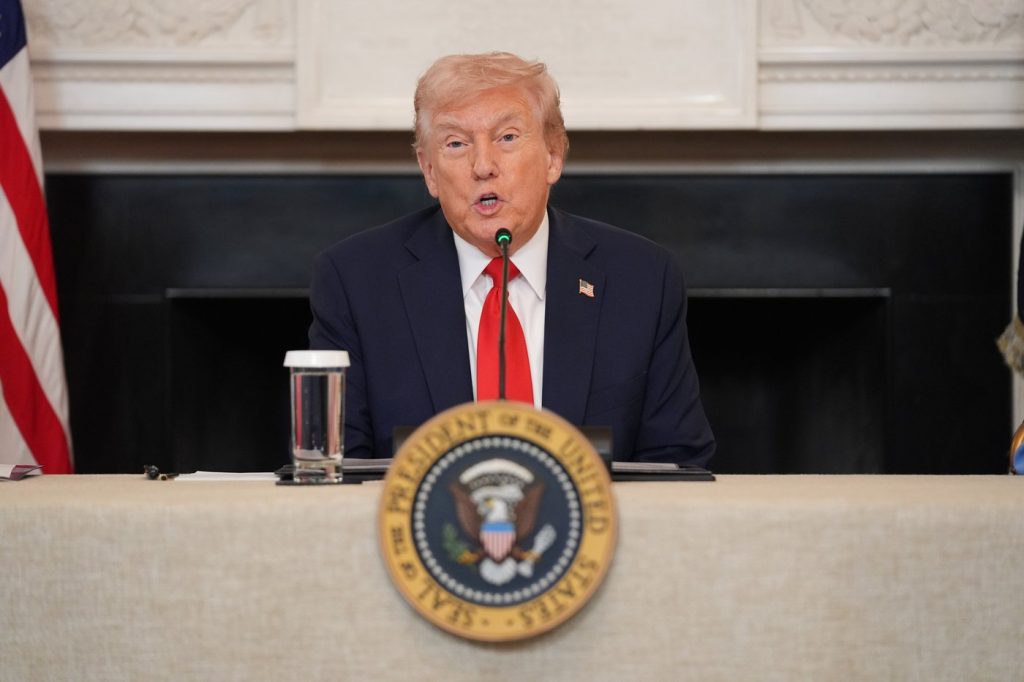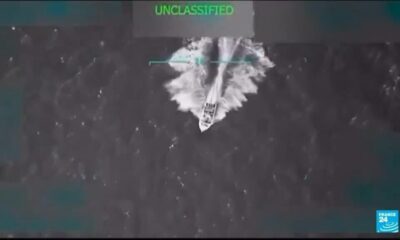Top Stories
Trump Administration Fails to Provide Evidence for Drug Strikes

UPDATE: The Trump administration is facing mounting pressure as it has failed to provide Congress with hard evidence that boats targeted in recent military strikes were involved in drug trafficking. This revelation comes amid bipartisan frustration over the military’s actions, with the Senate voting Wednesday on a war powers resolution aimed at requiring President Trump to obtain congressional authorization for further strikes against drug cartels.
According to two U.S. officials familiar with the matter, the administration has only offered unclassified video clips as proof, without presenting any concrete evidence that the vessels were carrying narcotics. This lack of transparency is alarming lawmakers, especially as 21 people were killed in the strikes, which the White House claims originated from Venezuela.
The military conducted at least four strikes, yet the administration has not clarified why it opted for lethal force instead of standard procedures like stopping and seizing drugs. The Pentagon maintains that these strikes are necessary for national security, labeling the drug cartels as “unlawful combatants” in a retroactive memo. This declaration raises serious questions about the legal framework under which Trump is operating.
Pentagon officials have pointed to videos and statements made by Defense Secretary Pete Hegseth as justification for the strikes. However, these do not confirm the presence of drugs on the targeted vessels. Lawmakers have expressed frustration at the administration’s vague reasoning behind declaring an armed conflict with cartels, with one official stating, “I’m not going to discuss any legal advice that my department may or may not have given,” when pressed.
Critics argue that the administration’s legal rationale does not hold up under scrutiny. A White House official countered that the Trump administration has been more open than previous administrations, citing six classified briefings provided to Congress. However, the push for military action appears to bypass traditional interagency processes.
While Venezuela is known for cocaine production, much of it is shipped to Europe, not the U.S. The Trump administration’s focus on the Venezuelan gang Tren de Aragua has intensified, with allegations that they are acting as a front for Venezuelan President Nicolás Maduro. The U.S. government has previously indicted Maduro on drug charges, escalating tensions between the two nations.
Diplomatic efforts have largely stalled, with the U.S. government not recognizing Maduro’s presidency, citing evidence of election fraud. The Biden administration’s stance on this matter remains clear, as they assert that Maduro is not a legitimate leader but a fugitive undermining regional security.
As the Senate debates the war powers resolution, what happens next could reshape U.S. military engagement and its approach to international drug trafficking. The situation is developing rapidly, and the implications of these military strikes may have lasting effects on U.S.-Venezuela relations and domestic drug policy.
Stay tuned for more updates as this urgent situation unfolds.
-

 Politics4 weeks ago
Politics4 weeks agoSecwepemc First Nation Seeks Aboriginal Title Over Kamloops Area
-

 World5 months ago
World5 months agoScientists Unearth Ancient Antarctic Ice to Unlock Climate Secrets
-

 Entertainment5 months ago
Entertainment5 months agoTrump and McCormick to Announce $70 Billion Energy Investments
-

 Science5 months ago
Science5 months agoFour Astronauts Return to Earth After International Space Station Mission
-

 Lifestyle5 months ago
Lifestyle5 months agoTransLink Launches Food Truck Program to Boost Revenue in Vancouver
-

 Technology3 months ago
Technology3 months agoApple Notes Enhances Functionality with Markdown Support in macOS 26
-

 Lifestyle3 months ago
Lifestyle3 months agoManitoba’s Burger Champion Shines Again Amid Dining Innovations
-

 Top Stories2 months ago
Top Stories2 months agoUrgent Update: Fatal Crash on Highway 99 Claims Life of Pitt Meadows Man
-

 Politics4 months ago
Politics4 months agoUkrainian Tennis Star Elina Svitolina Faces Death Threats Online
-

 Sports5 months ago
Sports5 months agoSearch Underway for Missing Hunter Amid Hokkaido Bear Emergency
-

 Politics5 months ago
Politics5 months agoCarney Engages First Nations Leaders at Development Law Summit
-

 Technology5 months ago
Technology5 months agoFrosthaven Launches Early Access on July 31, 2025





















